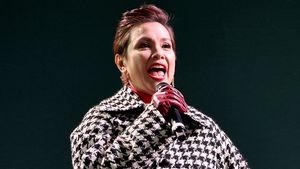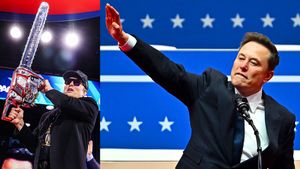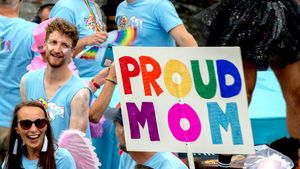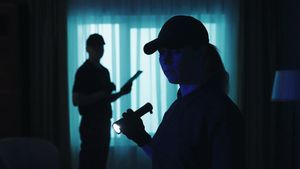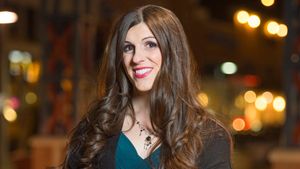A bombshell actress with brains too, Amber Heard slips into the famed retro bunny ears as the lead in NBC’s The Playboy Club this fall. SheWired has been anxiously anticipating the new series because in addition to Heard being out and in a relationship with a woman (photographer Tasya Van Ree), there’s also the promise of a lesbian Bunny character and storylines addressing the LGBT movements in the tumultuous 1960s.

Heard talked to Playboy magazine about the curve-hugging bunny suit, feminism at The Playboy Club, her on-screen nudity, atheism, and her relationship with Van Ree.
Get to know the woman behind the ears a little better with a few juicy excerpts from the revealing interview now:
PLAYBOY: You play Maureen, a Playboy Bunny, on the new NBC drama The Playboy Club. Now that you’ve spent time in the Bunny suit, you can tell us: Is it really that uncomfortable?
HEARD: It feels about an inch away from death. If it got any tighter, we wouldn’t be able to sit upright. I’m serious—it’s that intense. But it looks great when you’re wearing it. Actually, you know what I really love about the Playboy Bunny outfit? It’s all about a woman’s silhouette. Whatever happened to that? Back in the 1960s it was fine to have curves. Do you know how happy I am that I get to keep some of my curves? For once I don’t have to starve myself.
PLAYBOY: There’s a real Playboy Club at the Palms in Las Vegas. If this acting thing doesn’t work out, would you consider working there as a waitress?
HEARD: Oh please. [laughs] No, not so much, though I have nothing but respect for the women who did. Back then it was not an option for women to go out and earn money and support themselves. Marriage was the best and most practical option. What I like about The Playboy Club is that it’s about women who were being independent and earning as much as their fathers. It was their chance to live their own life, to do whatever they wanted on their own terms. The feminist movement is often clouded by Gloria Steinem’s perspective, but to deny women their sexuality is just as chauvinistic. The women who worked at the Playboy Clubs were using sexuality to their advantage.
PLAYBOY: You’ve been naked an awful lot in your movies. Do you have to psych yourself up for a nude scene, or is it no big deal?
HEARD: I approach all my movies with an open mind and a willingness to dive in and do what’s asked of me. But a lot of the nudity in my early movies was out of necessity. When I came to Hollywood, I didn’t know anybody. I didn’t have any connections. I did what a lot of people have to do in the real world and just worked from the bottom up. And that meant taking a lot of roles as the girl at the party who loses her shirt. But now I’m doing things I find artistically and emotionally fulfilling. I’m not opposed to nude scenes if they’re appropriate. I’m not against them morally, but I personally no longer find movie nudity to be worth my while. That may change in the future. I’m keeping an open mind, as always, because that’s what you have to do.
PLAYBOY: Even when you’re not naked in movies, you’re at least seminaked. Your Daisy Duke shorts in Drive Angry 3D, for instance, left little to the imagination. Is it true those shorts came from your own closet?
HEARD: Yes, that is true. Those were my shorts. I don’t know if I’m proud of that, but they were. I’ve had shorts like that for a very long time. I can’t remember a time in my life when I didn’t have them. I remember when my Daisy Dukes fit me in a different way. When I was younger and a little slimmer, they were baggy and not so revealing.
PLAYBOY: You went to a Catholic high school but dropped out when you were just 16. Did you leave because of the religion or the uniform?
HEARD: It was a great education but a stifling experience for me as an individual. For as long as I can remember I’ve been the kind of person who goes against the grain and questions authority, and that doesn’t make for an ideal religious follower. I always felt like an outcast at school. I had good friends but none I truly related to. I lost my best friend in a car accident when I was 16, and as you can imagine, it was incredibly tough. But that wasn’t the reason I left school. I’d already been on this path toward questioning religion and questioning my place within it. I had always been a reader and a skeptic, so when I was old enough to break away from organized religion, it just came naturally.
PLAYBOY: You came out of the closet last December, sharing details of your relationship with photographer Tasya Van Ree. As a Hollywood sex symbol, did you notice that the announcement had any effect on your career?
HEARD: First of all, to say I came out implies that I was once in. Let me be straight about that—no pun intended [laughs]—I never came out from anywhere. I’ve always lived my life the way I’ve wanted and have been honest with myself and everyone around me. It didn’t really affect anything in my career. I don’t think the producers and directors I’ve worked with care one way or another. The only frustrating part has been all the media attention. For someone like me who prefers to keep her life as private as possible, it has been disconcerting to have to define so much about myself. I don’t want to be labeled as one thing or another. In the past I’ve had successful relationships with men, and now I’m in this successful relationship with a woman. When it comes to love I am totally open. And I don’t want to be put into a category, as in “I’m this” or “I’m that.”
PLAYBOY: Gay marriage continues to be a contentious issue. If it ever becomes legal, would you be the first in line to get married to Tasya?
HEARD: It’s an important issue, and I’m fighting for the right to get married. [pauses] For other people.
For more on Heard’s upbringing in Texas, which included lots of responsible gunplay, and her new series, read the full 20-question interview on Playboy.com.
Follow SheWired on Twitter!
Follow SheWired on Facebook!











































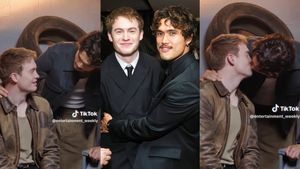



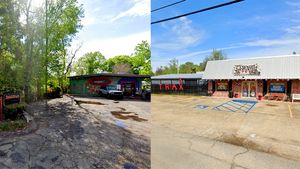


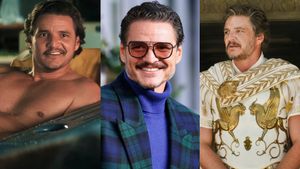
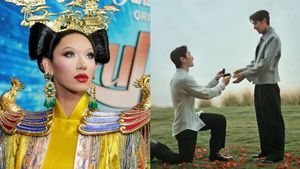




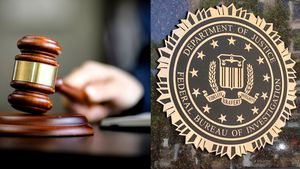






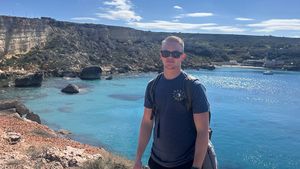

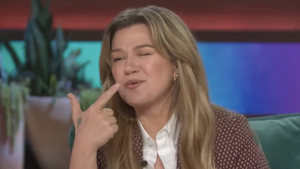

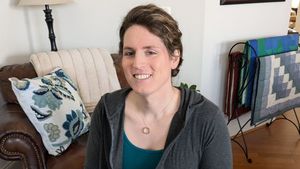
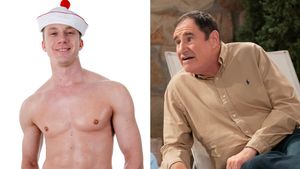

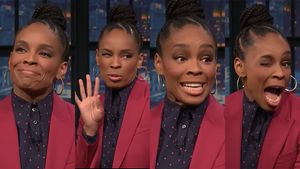













































![Paulie Calafiore dishes on his steamy thirst traps: 'Everybody wants to see [me] half-naked'](https://www.out.com/media-library/image.jpg?id=59778323&width=300)
